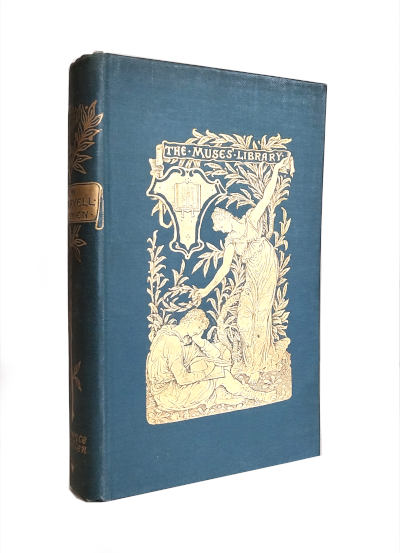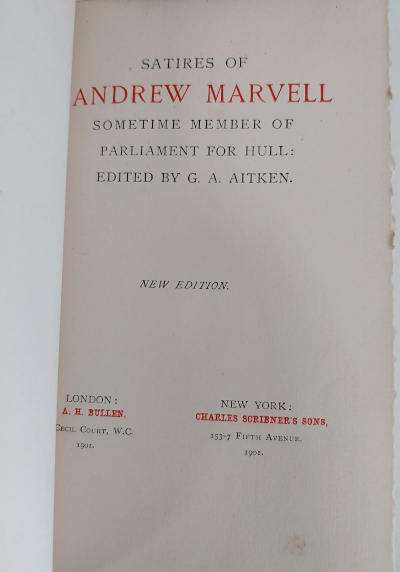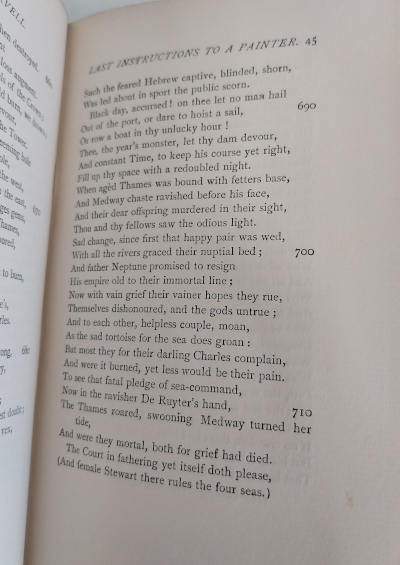About Marvell (from Poetry Foundation.org)
Andrew Marvell is surely the single most compelling embodiment of the change that came over English society and letters in the course of the 17th century. In an era that makes a better claim than most upon the familiar term transitional, Marvell wrote a varied array of exquisite lyrics that blend Cavalier grace with Metaphysical wit and complexity. He first turned into a panegyrist for the Lord Protector and his regime and then into an increasingly bitter satirist and polemicist, attacking the royal court and the established church in both prose and verse. It is as if the most delicate and elusive of butterflies somehow metamorphosed into a caterpillar.
To be sure, the judgment of Marvell’s contemporaries and the next few generations would not have been such. The style of the lyrics that have been so prized in the 20th century was already out of fashion by the time of his death, but he was a pioneer in the kind of political verse satire that would be perfected by his younger contemporary John Dryden and in the next generation by Alexander Pope (both writing for the other side)—even as his satirical prose anticipated the achievement of Jonathan Swift in that vein. Marvell’s satires won him a reputation in his own day and preserved his memory beyond the 18th century as a patriotic political writer—a clever and courageous enemy of court corruption and a defender of religious and political liberty and the rights of Parliament. It was only in the 19th century that his lyrical poems began to attract serious attention, and it was not until T.S. Eliot’s classic essay (first published in March 1921), marking the tercentenary of Marvell’s birth, that Marvell attained recognition as one of the major lyric poets of his age.




